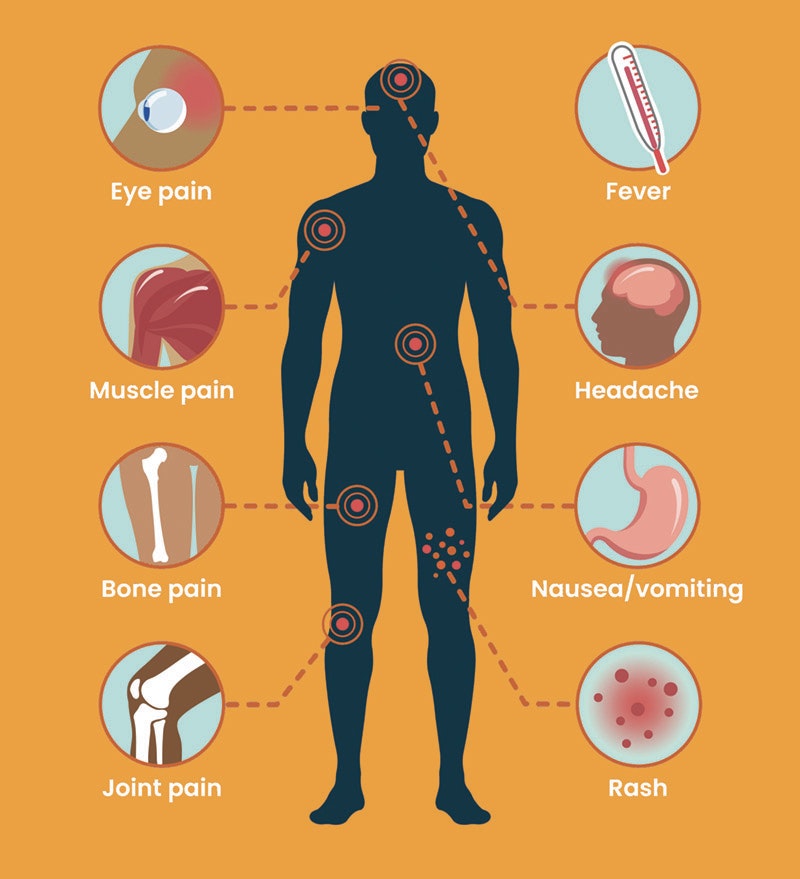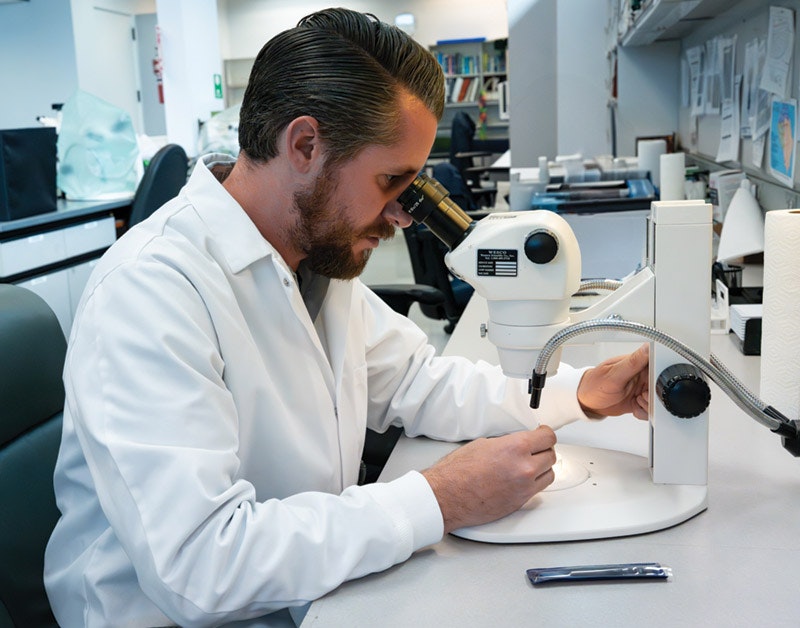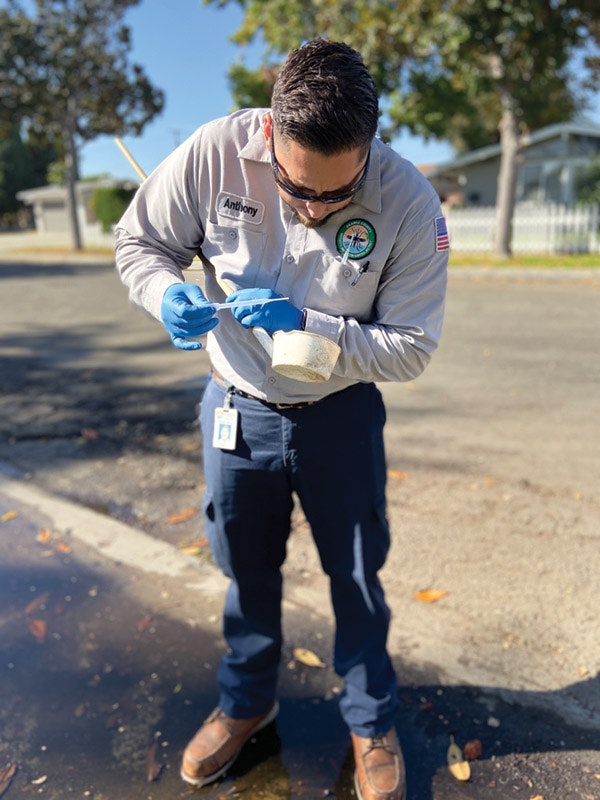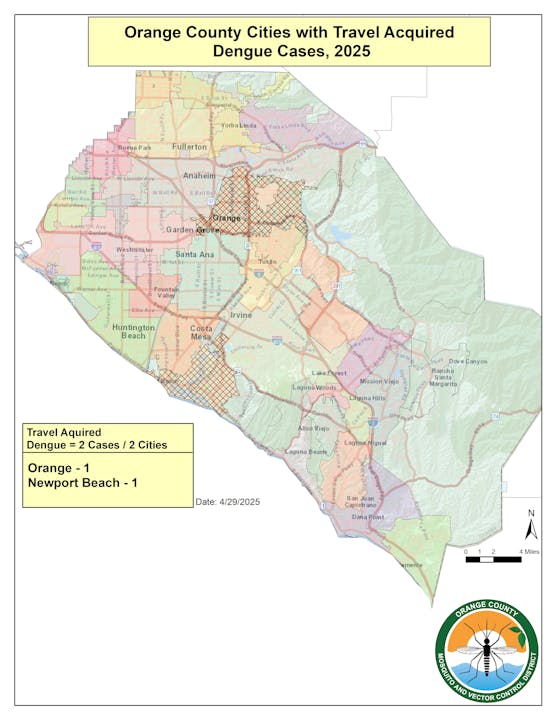Dengue

Dengue Transmission
Travel-related transmission of dengue occurs when a person visits an area where dengue is endemic and is then diagnosed with dengue after returning home. Local transmission occurs when a mosquito bites someone with dengue and then transmits it to one or more people nearby. Local transmission has been documented in California.
Dengue Symptoms

About three out of four people who are infected never develop any symptoms, but mosquitoes
can still spread the virus by biting an asymp-tomatic person and transmitting it to others.
Symptoms of dengue usually occur within two weeks after a person is bitten by an infected mosquito and typically last two to seven days. Most people recover after about a week.
If a person does get sick with dengue, their symptoms can be mild or severe. About one in 20 people that get sick with dengue will develop severe dengue.
Severe Dengue
Severe dengue is a medical emergency.
Severe dengue can result in shock, internal bleeding, and death. Immediately go to a local clinic or an emergency room if you or a family member has any of the following warning signs:
- Belly pain or tenderness
- Vomiting (at least three times within 24 hours)
- Bleeding from the nose or gums
- Vomiting blood, or blood in the stool
- Feeling extremely tired or restless
In most cases, warning signs usually begin approximately 24 to 48 hours after the fever has gone away.
Testing for Dengue

See your healthcare provider if you have symptoms of dengue and/or live in or have recently traveled to an area with risk of dengue.
A blood test is the only way to confirm the diagnosis. Laboratory confirmation is not required to manage illness from dengue, and your healthcare provider might provide care based on your signs and symptoms.
Your healthcare provider may order blood tests to look for dengue or other similar viruses like Zika or chikungunya.
If You Have Dengue
If you have dengue, do everything you can to prevent mosquito bites. During the first week of illness, dengue can be found in the blood. At that time, the virus can be passed from an infected person to a mosquito and then to other people through mosquito bites.
Keep Yourself and Your Family Safe
Dengue can be fatal. The best way to prevent dengue transmission is to reduce mosquito breeding. Ask your family, friends and neighbors to help curb the mosquito population.

- Dump and drain any containers filled with water at least once a week.
- Clean and scrub bird baths and pet water bowls weekly.
- Dump water from potted plant saucers.
- Avoid transporting or sharing plant stems rooted in water.
- Drill holes or puncture containers to eliminate standing water.
- Apply mosquito repellent containing DEET, Picaridin, IR3535, or oil of lemon eucalyptus to exposed skin before going outdoors.
- Close all unscreened doors and windows to prevent mosquitoes from entering your home or space. Repair broken or damaged screens.
- Wear long-sleeved shirts and long pants and opt for lighter colored clothing.
The Orange County Mosquito and Vector Control District (OCMVCD) encourages the public to report mosquitoes by either calling the District or submitting an online service request. An Inspector will call promptly to schedule an inspection and possible treatment at no charge.


%20(Photo%20Postcard)%20(Logo)%20(3).png?ixlib=rb-1.1.0&or=0&w=720&h=720&fit=max&auto=format%2Ccompress&s=7fa00874f7c1b2f9feb66ad067561b62)